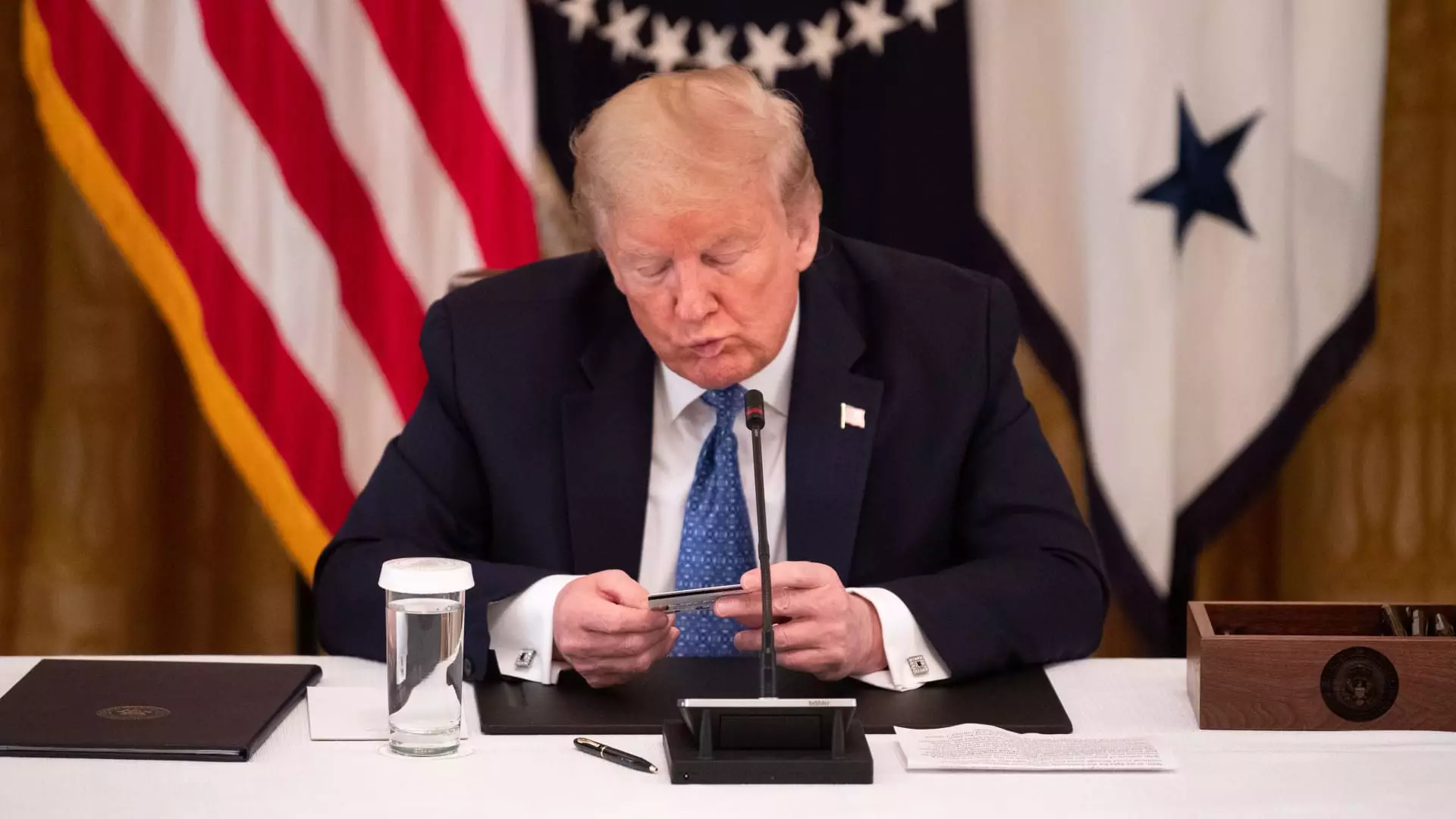The cryptocurrency revolution has captivated many, drawing celebrities and political figures alike into its complicated web. Among these is former President Donald Trump’s new venture, World Liberty Financial (WLF), which recently launched its initial token sale. However, the debut has been far from successful, revealing substantial hurdles that could hinder both the project and Trump’s larger aspirations in the financial technology sector.
WLF’s token launch, held on a Tuesday, was marred by technical issues that significantly affected investor engagement. Despite public statements suggesting strong interest—over 100,000 individuals on the investment whitelist—the reality was starkly different. The WLF website faced frequent outages, displaying maintenance messages for extended periods, which understandably frustrated potential investors.
As of Tuesday afternoon, blockchain data indicated only about 4,300 unique wallet addresses had acquired the WLF token, accounting for a meager 4% of the registered investor pool. Additionally, the number of tokens sold stood at over 532 million out of the 20 billion offered—a mere 3%—which brings to light concerns regarding the efficacy of the project’s promotion and execution. The technical failures during such a crucial launch phase reflect poorly on the operational integrity of WLF and raise questions about its future viability.
The launch issues frame a troubling narrative not only for the crypto venture but also for Trump himself, particularly in the context of the upcoming presidential election. With about three weeks to go until voting, perceived incompetence within a high-profile project tied to his name could tarnish his reputation among supporters and investors alike.
The way in which this launch has unfolded may suggest a lack of readiness or a deficiency in strategic planning. While Trump has long been a polarizing figure, showcasing innovation can be a pivotal factor in attracting a dedicated following. The inability to manage a simple token sale effectively may deter both seasoned investors and newcomers from engaging in future endeavors featuring Trump’s brand.
According to reports, WLF aims to raise $300 million at a valuation of $1.5 billion through the sale of its Regulation D token, WLFI. However, the details surrounding this ambition remain vague. The lack of an official white paper or detailed roadmap could foster skepticism about the project’s legitimacy and transparency. Without clear information regarding the structure and utility of the token, potential investors are left in the dark.
Additionally, the project is veiled in regulatory complexities, as it targets accredited investors—individuals possessing a net worth exceeding $1 million. This exclusive approach might limit interest from a broader audience, which could be detrimental to its long-term goals. With the current climate of regulatory scrutiny surrounding cryptocurrencies, WLF’s compliance with pertinent laws will be paramount to its survival in a tumultuous market.
Interestingly, the woes of Trump’s crypto initiative weren’t isolated. The shares of Trump Media & Technology Group, the company behind Truth Social, also encountered declines of nearly 10% following trading interruptions. This dual setback paints a concerning picture of the Trump brand in the domains of technology and finance.
Investors generally seek consistency and reliability, characteristics that may appear compromised across Trump-associated ventures. If not addressed, the ongoing poor performance of these projects could reinforce a perception of volatility tied directly to Trump’s brand, potentially leading to long-term financial ramifications.
World Liberty Financial’s rocky start illuminates significant challenges facing Donald Trump’s foray into the cryptocurrency space. Technical failures, a lack of transparency, and regulatory hurdles are all pivotal issues that need to be addressed to foster investor confidence. As the political landscape shifts and the financial realm becomes increasingly competitive, how Trump responds to these setbacks will ultimately dictate the future success or failure of his crypto ambitions, with broader implications for his political narrative. Engaging experienced partners and focusing on operational excellence could be essential steps in navigating this complex landscape.

